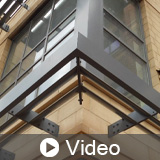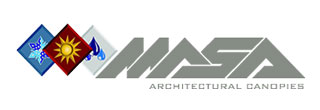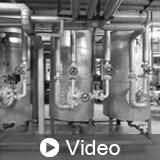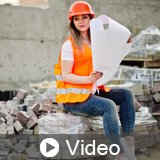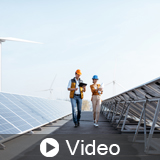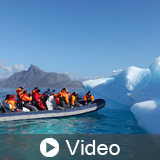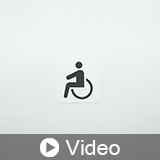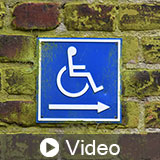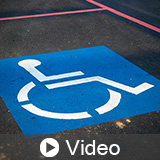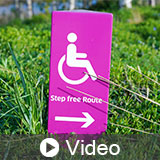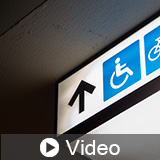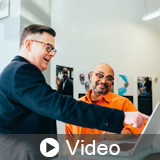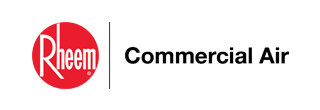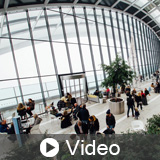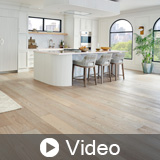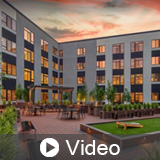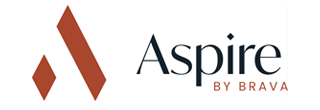This course discusses the benefits of a thoughtfully-designed light control system and how to make it work for your project’s daylighting and design needs. The discussion emphasizes implementing best-practice methods and specification of daylighting canopy and sun shade systems to create unique and aesthetically-pleasing architectural building enhancements. The result will be a full-scope view on successfully repurposing natural light for greater environmental, human health, and aesthetic function.
FREE |
|
Sustainable kitchen design encompasses environmental, health, and social considerations. In this course, we explore innovative approaches that prioritize energy efficiency, the use of healthy materials, and the enhancement of overall well-being. As the demand for eco-friendly living spaces continues to rise, design professionals play a pivotal role in shaping the future of kitchen design. Our team discusses LEED v4.1 BD+C and ID+C strategies that can help design professionals create healthier and more sustainable kitchen spaces for building occupants.
$45.00 |
|
The goal of this course is mainly to create awareness about powder coating technology as an environmentally friendly alternative to liquid coatings. After this course, the design professional will be aware of the environmental and physical advantages of powder coating systems in order to knowledgably specify them in place of conventional liquid coating systems.
FREE |
|
Eliminate the risk for Legionella and generate reliable hot water production with tankless water heaters! Join us for this one-hour course as we evaluate risks associated with Legionella and the health benefits of tankless water heaters. In this course, participants will investigate the standards aimed at eliminating Legionella risk from the water supply and the tankless hot water technologies that prevent such bacterial growth in domestic water systems.
FREE |
|
Bluetooth operable, modular construction without compromising the demand for reliable, continuous hot water. Join us for this one-hour course as we explore electric tankless water heaters engineered for commercial applications. In this course, participants will dive into the newest technologies of hot water production that showcase the notable achievements of electric tankless water heaters in creating a minimal footprint, establishing an ease of serviceability and offering simplicity in operation and installation.
FREE |
|
The impending climate crisis casts a looming shadow over our planet, and the responsibility to avert catastrophe falls upon us all. Design professionals can wield their creative powers to conceive sustainable, resilient, and regenerative solutions before it's too late. Diverting construction waste from landfills and promoting recycling, reuse, and responsible disposal practices can significantly contribute to reducing carbon emissions.
$39.00 |
|
Whole building LCA and carbon analysis play a crucial role in promoting sustainable and low-carbon construction practices. By considering the entire life cycle of a building, these assessments help reduce environmental impacts and contribute to a more sustainable built environment. In this course we explore how project teams can use whole building LCA to reduce carbon for LEED v4.1 BD+C and ID+C projects.
$39.00 |
|
In a world where climate change rages unchecked, the skies weep acid rain, monstrous storms destroy coastal cities, vibrant communities turn into desert wastelands, millions flee their homes, entire species go extinct, and ecosystems collapse. Renewable energy can play a vital role in addressing these challenges and mitigating the worst effects of climate change. In this course, we explore how renewable energy can help reduce carbon emissions for LEED v4.1 BD+C and ID+C projects and reduce environmental impacts.
$39.00 |
|
Embodied carbon is the hidden impact embedded within construction materials and products and contributes significantly to our carbon footprint. By understanding the implications of your specification decisions, you possess the key to not only reducing embodied carbon, but also creating resilient and environmentally conscious structures. In this course, we explore how LEED v4.1 BD+C, ID+C, and O+M ratings systems address embodied carbon and help reduce environmental impacts.
$39.00 |
|
Deadly hurricanes, blistering heatwaves, melting ice caps, massive crop failures, catastrophic droughts, and significant economic losses are the result of carbon emissions, specifically in the form of carbon dioxide (CO2) and other greenhouse gases. Addressing carbon emissions is crucial to mitigating these devastating effects. Design professionals play a critical role in mitigating carbon emissions through their design decisions and practices. In this course, we explore the LEED Zero certification program and how it can help fight climate change.
$39.00 |
|
Offers GBCI Credit. NO AIA Credit. The new US Government Electrification program will change the way homes and buildings are built to heat and distribute the hot water, energy efficiency and overall sustainability. The objective is to reduce Carbon Footprint. Water and energy are precious resources, and, unfortunately, traditional hot water distribution systems not only waste but create green gas, pollution and sewage processing. Join us in this one-hour course as we discuss how the distribution of hot water directly impacts energy use, water consumption, air pollution and waste.
FREE |
|
Learn about Doors, Signage, Counters and Seating and the ADA.
$35.00 |
|
An advanced discussion over toilet rooms according to the 2010 ADA Standards.
$35.00 |
|
In depth review of parking according to the ADA. The speaker will cover the definitions and learn about parking spaces and the number of accessible parking spaces required.
$35.00 |
|
Learn about accessible routes, what to know, what to look for.
$35.00 |
|
Learn the key things you MUST know regarding ADA compliance as an Architect and Engineer
$35.00 |
|
Since the early 1600s when a Dutch engineer invented the world’s first regulator for keeping incubators heated at a constant temperature to keep eggs warm and hatch them into baby chicks, the automation of commercial buildings has come a long way. With the advent of DDC, the internet, multiple protocols, and the cloud, building controls advanced even further in its ability to improve building performance and occupant comfort.
FREE |
|
The battle to maintain temperature and humidity within critical zones has given HVAC engineers headaches for years—but not anymore! Join us in this one-hour course as we discuss the effects of poor temperature and humidity control on the building and its occupants, as well as the main zone variables and how to balance these attributes. Participants will learn how technology can provide a neutral air zone in the most sustainable and efficient manner to provide a predictable indoor environment.
FREE |
|
The course covers includes sustainability considerations including forest sustainability and greenhouse gas emissions and sequestration.
FREE |
|
During the Industrial Revolution, engineers looked for ways to create materials that were strong, waterproof, and long-lasting. New advances in technology led to the creation of beautiful, better-performing, longer-lasting, and sustainable materials for a wide use of applications. In this course, we compare traditional pavers with composite paver systems and how they differ in durability, lifespan, and maintenance. In addition, we discuss how composite pavers produce a smaller carbon footprint and are a more sustainable solution than traditional pavers.
FREE |

